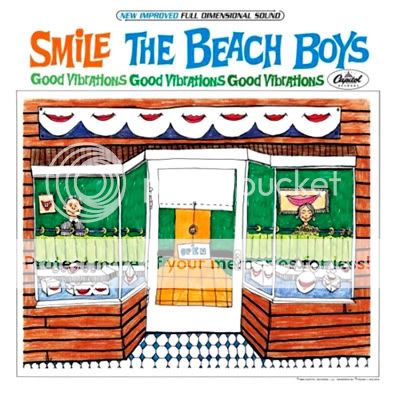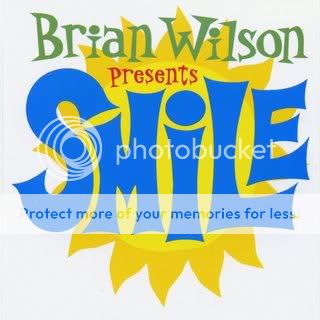 There is an excellent series of small books on great or significant albums called 33 1/3. If you are interested in popular music, you may want to get hold of these. Each album is selected by the author, each with their individual approach and style, reflecting on the album, the artist, and the times they operate in. With more than one hundred books and counting in the series- from Serge Gainsborough, to Nine Inch Nails, Johnny Cash, Hole, Public Enemy, Flying Burrito Brothers, Black Sabbath and Kanye West - they cover a wide range of style and times. If you feel so moved, you can pitch an album and have a go yourself.
There is an excellent series of small books on great or significant albums called 33 1/3. If you are interested in popular music, you may want to get hold of these. Each album is selected by the author, each with their individual approach and style, reflecting on the album, the artist, and the times they operate in. With more than one hundred books and counting in the series- from Serge Gainsborough, to Nine Inch Nails, Johnny Cash, Hole, Public Enemy, Flying Burrito Brothers, Black Sabbath and Kanye West - they cover a wide range of style and times. If you feel so moved, you can pitch an album and have a go yourself.
Personally, I have Swordfishtrombones (Tom Waits) ABBA Gold, Pet Sounds, and Smile (both The Beach Boys) from the series. So far, only the Beach Boys have two albums covered in the catalogue. Even odder, one of those albums doesn't exist. Not really. Which is maybe why it's there.
Smile was the great unfinished album of the 60s. So the story goes, hearing the Beatles' Rubber Soul, Brian Wilson, the composer and producer for the Beach Boys, was inspired to write an album in which every song was good, no filler. The result was Pet Sounds, often held up as one of the great albums. The Beatles' response to that was Sergeant Pepper's Lonely Hearts Club Band, no slouch itself. Wilson went to top that with Smile, a teenage symphony to God, as he termed it. But pressure from his band, himself, his drug-use, his already fragile psyche, and from the industry saw increasingly-eccentric Wilson crack, and put the tapes away, never he said to be used. Wilson himself went into a long period of psychological trauma, from which he emerged periodically only to fall back, until he made a solo comeback, problematic in itself, in the late 80s. The man back today producing new music, appearing live around the world, is a scarred-survivor.
But some of the songs did come out on other albums; 'Heroes and Villains', 'Barnyard', 'Vegetables', 'Momma Says' 'Wind Chimes', 'Wonderful' and 'Surf's Up', the song that prompted Leonard Bernstein to call Wilson a genius, all made their way onto other releases, some as whole songs, some as fragments. (Van Dyke Parks, Wilson's lyricist for Smile, suggested 'Surf's Up' be put on one album and used as the title instead of the planned Landlocked, and the album should sell a million. He was right.) Wilson's magnum opus, 'Good Vibrations', previously released as a single, was the band's first million seller and was meant to be the album's climax. Why that never happened has been the topic of books, movies, articles and countless discussions and arguments.
 The Beach Boys next album instead of Smile was Smiley Smile, which Carl Wilson described as a bunt, rather than a home run. The Beach Boys stumbled ahead of the game here, with an album whose production was simpler and more direct. Dylan and the Beatles were both to offer much simpler albums in its wake. Hopes that Smile would ever see the light of day faded and fans responded with pirated bootleg versions, arguing over which songs would make the album and in which order. My favourite comment of all time, about just about anything on the internet, was one fan who declared, "I don't care what Brian Wilson says, [name of song] was never going to be on Smile!" If that doesn't sum up the world of internet comments, I don't know what does.
The Beach Boys next album instead of Smile was Smiley Smile, which Carl Wilson described as a bunt, rather than a home run. The Beach Boys stumbled ahead of the game here, with an album whose production was simpler and more direct. Dylan and the Beatles were both to offer much simpler albums in its wake. Hopes that Smile would ever see the light of day faded and fans responded with pirated bootleg versions, arguing over which songs would make the album and in which order. My favourite comment of all time, about just about anything on the internet, was one fan who declared, "I don't care what Brian Wilson says, [name of song] was never going to be on Smile!" If that doesn't sum up the world of internet comments, I don't know what does.
Then in 2004, the unthinkable happened; Brian Wilson toured presenting a live version of Smile, then released a studio album, Brian Wilson presents SMiLE. The arguments started immediately, how much was this the Smile album, really? It was forty years since he had first attempted it, production methods are all so different, didn't he say it should never be released, the voices were not the Beach Boys, and so on. Indeed, given what had happened to him in the interim, how much was Brian Wilson still Brian Wilson? The album was a critical success, winning a Grammy for Best Rock Instrumental Performance. Then in 2011, the Beach Boys management released The Smile Sessions, doing what the fans had been doing for decades, creating an album from the session tapes. It too was supervised by Wilson but it too is not the Smile album, by definition. In any case, there are now two official versions of an album that doesn't exist.
Being a bit of a Beach Boys tragic, I have both versions in my collection. Wilson's is the better for mine, better finished with a better flow, which only makes sense, as he extensively reworked the material with a band, led by musical director Darian Sahanaja, while Parks reworked the lyrics. The voices are not the Beach Boys, but they're pretty darn good. I can also see why the rest of the band was so worried about it. It is an unusual album, a collection of three suites rather than a traditional pop album. Park's lyrics are poetic, obscure, baroque. You can hear the influence of Gershwin's Rhapsody in Blue, Wilson attempting to give pop music the same veneer and relationship to classical music as Gershwin did for jazz. The opening number, 'Our Prayer', would not sound out of place next to the 'Humming Chorus' from Madame Butterfly. The album has a ambition and scope that is unmatched in popular music.
 In any case, 33 1/3's Smile is an atypical book in the series. Usually, the track by track analysis of the album takes up the bulk of the book. Instead, we have an essay on the Beach Boys and Brian Wilson, the progress of their music and its place in the popular pantheon, as well as an examination of the story and myth of Smile. Only in the last few pages are individual tracks glanced at. The author Luis Sanchez finds a much more positive story in the tapes from the Smile sessions. Instead of a man falling apart, he hears a man in control of himself, his music and sensitive to the needs of his collaborators. There are other books on the subject that I think are better. As it never actually examines the album itself, it doesn't really fit in with the series. I was disappointed. There is much to discuss with the extraordinary music and lyrics, the differences between the 1966 tapes and the 2004 versions musically, lyrically, as well as the differing track orders proposed by Wilson then and now, but Sanchez does nothing with any of this. It's a missed opportunity.
In any case, 33 1/3's Smile is an atypical book in the series. Usually, the track by track analysis of the album takes up the bulk of the book. Instead, we have an essay on the Beach Boys and Brian Wilson, the progress of their music and its place in the popular pantheon, as well as an examination of the story and myth of Smile. Only in the last few pages are individual tracks glanced at. The author Luis Sanchez finds a much more positive story in the tapes from the Smile sessions. Instead of a man falling apart, he hears a man in control of himself, his music and sensitive to the needs of his collaborators. There are other books on the subject that I think are better. As it never actually examines the album itself, it doesn't really fit in with the series. I was disappointed. There is much to discuss with the extraordinary music and lyrics, the differences between the 1966 tapes and the 2004 versions musically, lyrically, as well as the differing track orders proposed by Wilson then and now, but Sanchez does nothing with any of this. It's a missed opportunity.
Why Smile was never finished in 1966 remains a mystery. We can never know what it would have been like, but at least we now have some good educated guesses to go on.
No comments:
Post a Comment